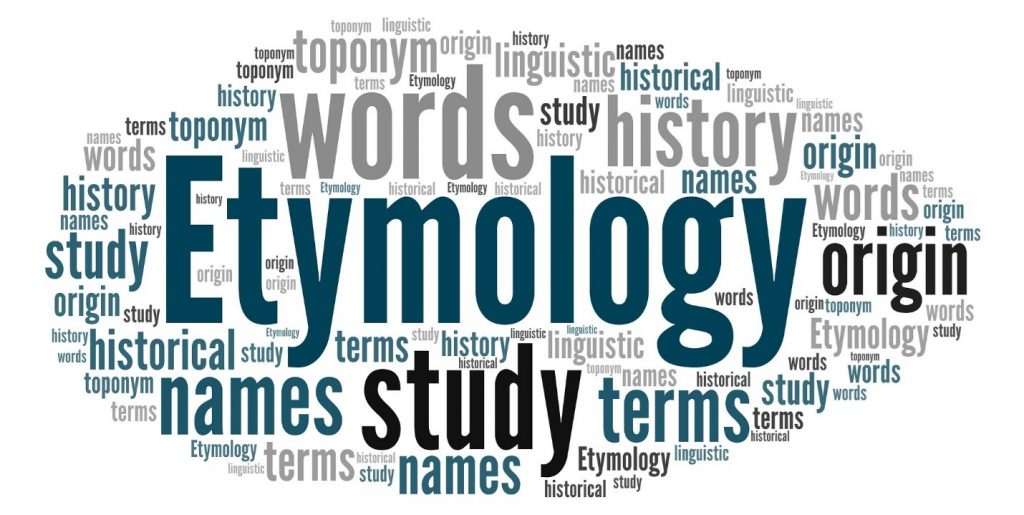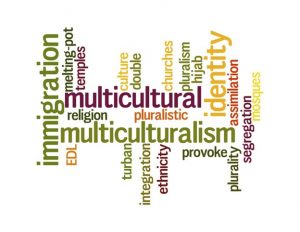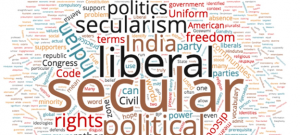DISTINGUISHING POSITIVE AND NEGATIVE CONNOTATIONS

Our examination of the range of meanings thrown up by the concept of “justice” and “fairness” in Arabic and English has pointed to various principles of investigation and analysis which might inform an exploratory glossary. These include the exploration of the range of meanings of selected words, whether concurrent in modern day usage, or changing over time, and can take in the diverse connotations which can be extracted from the typically triliteral consonantal root system in Arabic (as a Semitic language) as well as etymological excavation in the case of English (as an Indo-European language). We need to be aware that the same word may be used with different meanings or emphases in current usage (e.g., tolerance, secularism, radical, conformity, multiculturalism, integration), and that a similar divergence in meaning may also apply to related words (radical/radicalization, moderation/mediocrity, morality/moralism, and so on). Within both these categories, we need to distinguish positive and negative connotations. We may find that the positive meanings tend to lie at the golden mean, and the negative ones at the extremes. A good example is the word “straight.” Muslims follow the Qur’an in praying to be guided on the straight path (1:6) and not to swerve from it (3:8). Following the “straight” path, however, does not have to be an excessively narrow path, a strait-jacket, a situation of “dire straits.” The root of the word “straight” (and “strait”) is Latin strictus, and it gives us many words expressing strictness, including “stricture, stringent, constrain, stress, distress, and distraught.” There is a message here for all those who push the beneficent sense of words beyond boundaries, either to excess or defect. If the excess of straightness is the strait-jacket, its defect is the crookedness or deviousness which has lost any sense of moral compass or orientation. A “bent copper” is a corrupt policeman, and to “go straight” is to get back on the right track after a stretch in prison.
But we have to be very careful here, because the association one can make between a lack of straightness and the concept of “deviation” or “deviance” (as well as that of “innovation”) raises other tricky issues, not least the problems caused by the disproportionate fear of deviation or “going astray” in some communities. The beneficent matrix of “community” is not the same as the rigid “communitarianism” that oppresses and dehumanizes the individual by imposing shame and stigma on those who are seen not to conform to group norms. Ibn Khaldūn recognized the equivocal nature of social bonding in his use of the term ʿaṣabiyyah (tribal partisanship). It can be a source of solidarity and social cohesion, but in its negative form it is that crudely jingoistic and smugly ethnocentric mentality which elevates tribal prejudice and parochial self-interest above what is right and just.
Much harm and anguish is caused by tribal and communitarian oppression. Deviation does not have to signify deviance in its sense of the brazenly bizarre, the grotesquely twisted, or the absolutely forbidden, but may simply refer to “divergence” in its more positive sense of branching out from established modes of thought and suspending judgement so as to remain open to multiple creative possibilities. Studies of creativity have shown how optimal creativity may result from an interplay between convergent and divergent approaches, with the former utilizing familiar and well-established standards and criteria to make judgements and come up with the single-best or “right” answer, while the latter is more open to exploring unexpected connections and remaining open to ambiguity. This echoes my earlier remarks about the importance of one of the vital outcomes of the process of dialectic – its release of the open-minded thinker from rigid affiliations, fear of change and instability, false certainties, and reluctance to approach anything which may be threatening to one’s sense of self.
This article is an excerpt from: Ziauddin Sardar & Jeremy Henzell-Thomas, Rethinking Reform in Higher Education (London/Washington: IIIT, 2017), pp. 193-5.
The views expressed in this article are those of the author and do not necessarily reflect the views of the International Institute of Islamic Thought (IIIT).




